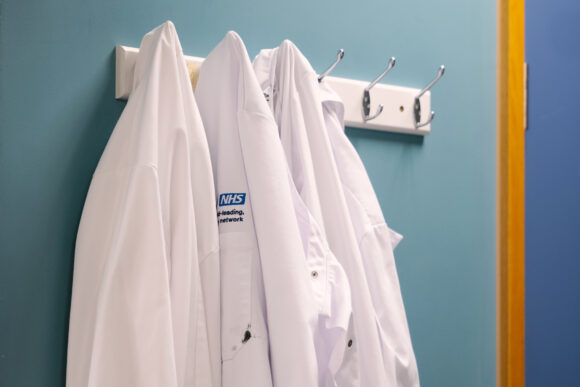
According to researchers, hackers have stolen login credentials from thousands of people working with the UK’s National Health Service, which pose a threat to the organization.
Data theft has been linked to a type of malicious software called an infoastler, which affects targeted computers and secretly collecting login credentials, after which hackers can use an organization to access the interior system.
According to an analysis by Hudson Rock, a cyber -residential firm based in Tel Aviv, the National Health Service, or infoastilelers have been compromised with nearly 2,000 2,000 computers used by hospitals and clinic running NHS across the country.
A spokesman for the NHS England did not directly resolve the Hudson Rock’s allegations. However, the spokesperson said that the agency has worked with the cyber -security partners, including the National Cyber Security Center, to manage the risks and provide a response to the “24/7” cyber monitoring and the incident in the national health service. The spokesperson said it includes the use of a “high serial alert system” that enables trusts to prefer the most important risks and resolve them as soon as possible.
The spokesman said that the NHS also used a multi -factor verification as an additional safety measure to prevent cyber criminals from accessing staff accounts.
According to Hudson Rock, there are many stolen credentials for accounts registered with the NHS.net email address, which means they belong to the NHS employee or affiliate, such as pharmacists or IT consultants, according to Hudson Rock. According to the analysis, the credentials were stolen between 2020 and 2025 and included passwords from the internal NHS email system and other platforms such as zoom, zandesk, sales force and NHS.UK.
Significantly, infoastillers do not just cut passwords – they often submit sessions from computers that affect them, which enables hackers to bypass legitimate login for counterfeiting and multi -factor verification.
“These certificates could potentially enable unauthorized access to critical infrastructure, according to Hudson Rock co -founder and chief technology officer Alan Gaul.”
In a message to Bloomberg News, Gaul said in a message that about 200 employees have compromised their computers in 2025 with infoastillers. Hudson Rock bought stolen data from cyber criminals and used it for his analysis. It is not uncommon for researchers at cybersecurity to analyze stolen data by hackers.
Gaul said the stolen data came directly from the infected computers through infoastilers, and other evidence has supported its authenticity, including the user’s browsing history and auto -information information, adding that the NHS and other companies have real people who are working in LinkedIn and elsewhere.
It is not known if the stolen credentials have been used for more interfering attacks in the NHS.
Saif Abid, a former CyberScureti expert and former NHS doctor, said he had reviewed Hudson Rock’s data and was terrified of what he had seen. He said the stolen credentials include login for electronic health record suppliers and certificates for administrators accounts, which could potentially be subjected to positive access to sensitive internal systems.
Abid said, the NHS and its supply chain “were compromised on levels that are a threat to protecting patients.” He called for a national investigation into the CyberScureti of the Health Service.
The NHS has been suffering from many extremely disturbing cybertics in recent years. In 2022, a hack on the NHS contractor affected the patient’s access to the patient’s record and caused a massive obstruction. According to Bloomberg, an attack on another contractor last year resulted in the death of thousands of canceled appointments in London hospitals and severely damaged the death of one patient and others.
The concern is that the curse of infoastillers can be another violation of the NHS. Similar attacks have damaged the health sector in other countries. Last year, a disabled attack on the health care of a subsidiary of the United Health Group Inc. Inc., for example, disrupted the payment system used by thousands of hospitals, insurance companies and pharmacies.
According to health care, this violation took place when hackers obtained a compromise certificate from one of their employees. Hudson Rock had linked theft of the credibility a few days before the attack.
Photo: On May 25, 2023, National Health Service Branding on Laboratory Coats in London, St. Thomas Hospital in London, UK and St. Thomas. Photo Credit: Jose Certificate Metos/Bloomberg.
Related:
Copyright 2025 Bloomberg.
Titles
Cyber
Is interested Cyber?
Get automatic warnings for this title.
